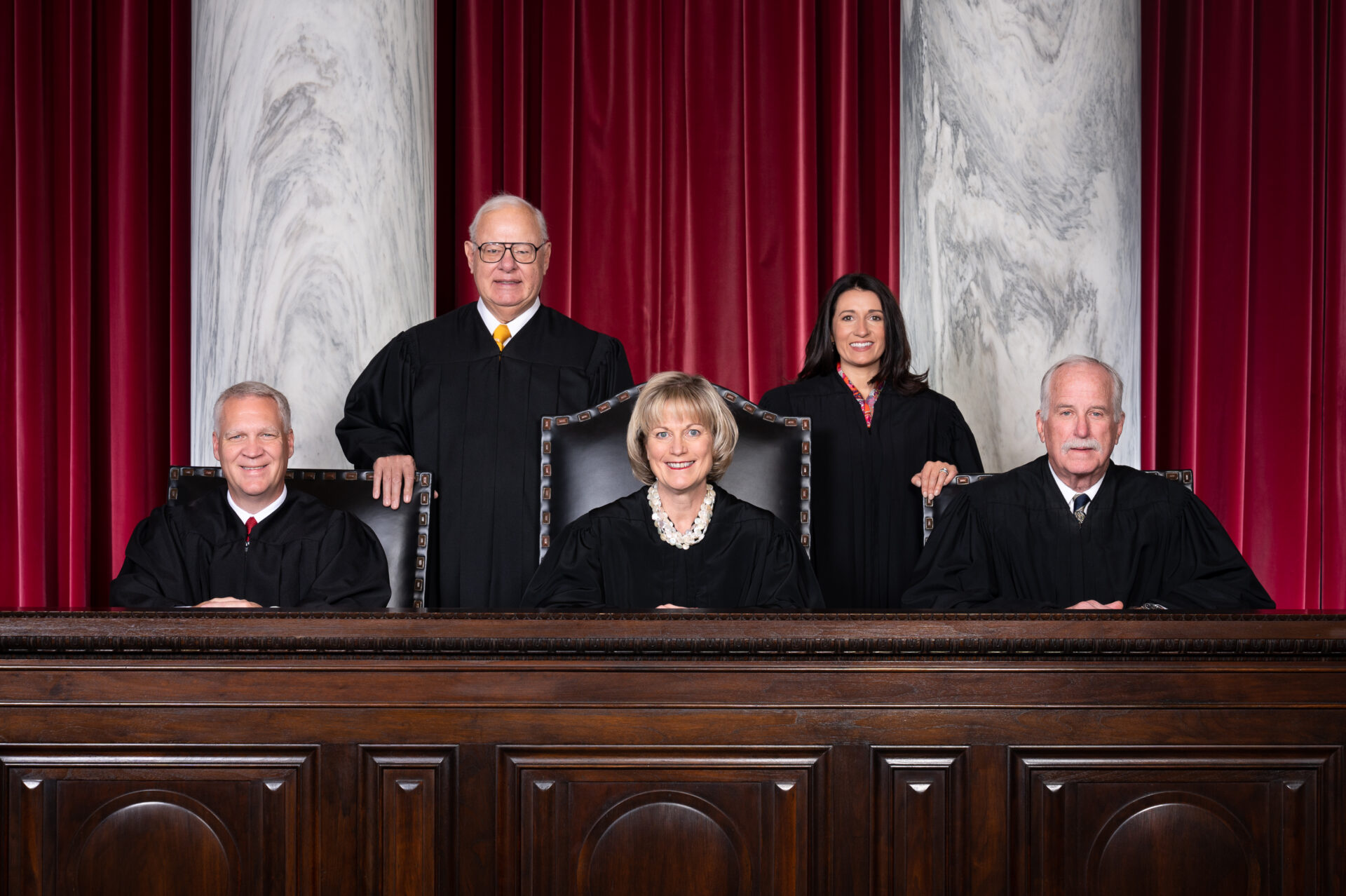West Virginia Supreme Court of Appeals’ deliberations can always be streamed live, but for people in the northern part of the state, it isn’t always possible to make the trip to Charleston to see them in person.
This week, the high court is going to be in Morgantown, hearing cases and working with students.
On Tuesday and Wednesday this week, the court will hear arguments at the West Virginia University College of Law in Morgantown.
Doors will open at 9 a.m. and arguments will begin at 10 a.m. in the Marlyn E. Lugar Courtroom at the College of Law.
The Court will hear the following cases in Morgantown:
Rule 20 Arguments:
- 10:00 a.m. Speedway LLC v. Deborah L. Jarrett, Executor of the Estate of Kevin Jarrett, No. 21-0215.
- 10:40 a.m. Robert Toler v. Cornerstone Hospital of Huntington, LLC, No. 21-0830.
- 11:20 a.m. Everett J. Frazier, Commissioner of the West Virginia Division of Motor Vehicles v. Steve Briscoe, No. 21-0991, and Everett J. Frazier, Commissioner of the West Virginia Division of Motor Vehicles v. Steve Briscoe, No. 21-0990.
Rule 19 Argument:
- 12:00 p.m. State of West Virginia v. Jaquaylla Kessler, No. 21-0674. 12:20 p.m. State of West Virginia v. Henry Jo Ward, No. 21-0806.
Documents filed in the cases are available on the West Virginia Judiciary website.
The Wednesday arguments will be part of the Legal Advancement for West Virginia Students civics education program — known as LAWS.
High school students from Monongalia and Preston counties will attend arguments in four cases. Local attorneys previously visited the schools to help students study the cases ahead of court day.
After the arguments are over, students have an opportunity to talk to the attorneys who argued the cases.
Since LAWS was established in 1999, more than 6,500 students in 40 counties have participated.
Students from Morgantown High School and Clay-Battelle High School will watch:
- 10 a.m. Rule 20 Argument in City of Charleston v. Robert Romaine, No. 21-0776.
- 10:40 a.m. Rule 19 Argument in State of West Virginia v. Tremaine Lamar Jackson, No. 21-0738.
Students from University High School and Preston County High School will watch:
- 11:15 a.m. Rule 20 Argument in State of West Virginia v. Justin Conner, No. 21-0323.
- 11:55 a.m. Rule 19 Argument in State of West Virginia v. Adonne A. Horton, No. 21-0532.
Documents filed in the cases are available on the West Virginia Judiciary website. The LAWS docket will be recorded and available on the West Virginia Judiciary YouTube channel so all West Virginia students have the opportunity to watch during their normal class times.
For more information on LAWS, visit the court’s website.
